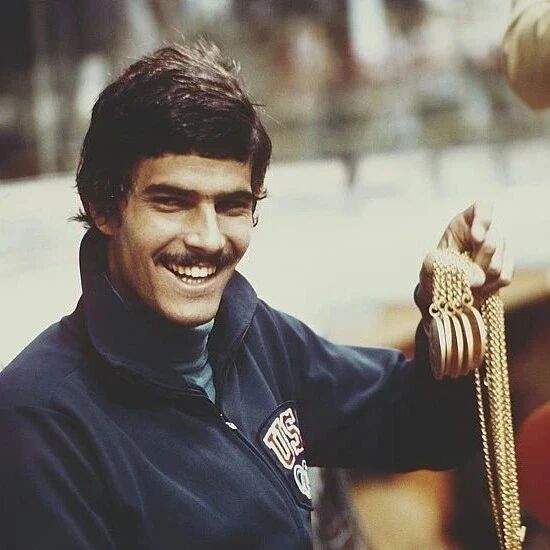Success Depends on a "Growth Mindset" (Part 1)



"A growth mindset" fosters a love for learning and remarkable adaptability—qualities essential for achieving great things. While experiences of failure can be tough, individuals with this mindset learn to appreciate everything they’ve gained from them. They view failure not as permanent setbacks but as valuable opportunities for personal growth and development.
PursuitDynamic self-development
MindsetRefers to the psychological state a person exhibits in a specific situation, which includes emotional fluctuations.(Such as fatigue, tension, joy, etc.), personality traits, and personality states. It is dynamically changing yet also possesses a certain degree of stability and integrity.Mindset is closely tied to people's worldview or outlook on life; a healthy mindset is sound, relatively stable, and enables individuals to respond flexibly to challenges, helping them adapt to societal and temporal changes.
Carol, a psychology professor at Stanford University in the United States・DweckCarol S.Dweck), the last century70After earning a PhD in psychology from Yale UniversityAtUniversity of IllinoisEngaged in psychological research.Driven by curiosity about failure,She spent11A year-long study exploring how different people cope with failure—and what success means to them.,Has been formedThe framework of the "growth mindset" theory
Dweck, in her groundbreaking book *Mindset*,Mindset) explains the two primary mindsets we adopt when facing new challenges—or even a whole new life.:"Fixed mindset" and "growth mindset." The "growth mindset" seeksDynamic self-development And“A fixed mindset” reflects a static self-perception. She pointed out:"Whether children or adults, abilities can be cultivated just like muscles—everyone has the potential to develop the skills needed to achieve what they want to do."
PossessingPeople with a "growth mindset" believe that their most fundamental abilities can be developed through effort—after all, the mind and natural talent are just starting points; no one is born an Einstein. As commonly understood, intelligence isn’t fixed—it can—and indeed should—be nurtured over time through hard work, a positive attitude, perseverance, and disciplined practice. A growth mindset fosters a deep love for learning and remarkable adaptability, qualities essential for achieving great things. While setbacks may feel challenging, individuals with this mindset learn to appreciate every lesson they gain from them. They view failure not as a permanent roadblock, but as a temporary setback—and, more importantly, as a valuable opportunity for personal growth. By focusing on the process itself, they ultimately find that outcomes become less critical.
With the intention of"People with a 'fixed mindset' believe that abilities are innate—that their core qualities, such as intelligence or talent, are simply fixed traits.TheyThey often spend their time documenting their own intelligence or talents instead of working hard to develop them. They also believe that natural is the key to success—thinking that talent alone is enough to guarantee achievement, and dismissing all their efforts as unnecessary. Instead of focusing on improving themselves through hard work, they tend to dwell on their strengths and weaknesses. And to avoid making mistakes, they often shy away from taking risks or being open to change.
Dweck emphasizes that, contrary to the common belief, the adult brain doesn’t actually have fixed neural circuits—it’s remarkably plastic instead. Neuroplasticity can be defined as the brain’s ability to continuously adapt and reorganize itself throughout life. For instance, over time, synapses may strengthen or weaken, or brain activity associated with specific functions can shift to different areas.
Neuroplasticity doesn’t stop after childhood—it continues throughout a person’s entire life. Depending on the activities we engage in, the connections within the brain constantly strengthen or weaken. Moreover, each time we repeat a thought or emotion, we tend to reinforce specific neural pathways. Over time, these small changes can accumulate and ultimately reshape how the brain functions. What does this mean? It means that even as we grow older, our brains remain dynamic, adaptable, and capable of forming new connections. More importantly, it highlights that cognitive abilities aren’t fixed—nothing prevents us from learning new things, tackling fresh challenges, or stepping outside our comfort zones. After all, this is what it truly means to have a brain that’s alive, evolving, and ready to embrace growth at every stage of life.The significance of a "growth mindset."
"A fixed mindset" is not advisable.
Since Dweck proposedSince the emergence of the "growth mindset," the concept of growth-oriented thinking has become the foundation for many high-level academic and athletic programs. Swimming is one of the most grueling and solitary sports—unlike team sports, where you can chat with teammates during training, swimming leaves you alone in the water, surrounded only by the sound of your competitors closing in behind you and the sharp whistle from your coach urging you to speed up. In swimming, there’s no room for cutting corners—after all, your coach’s stopwatch never lies!
Swimming training is intense and high-pressure, making athletes prone to fatigue and anxiety during sessions. That’s why it’s crucial to cultivate a growth mindset, learning how to effectively recover and regulate mentally—preventing emotional buildup from negatively impacting training performance. For elite athletes, soaring expectations can make it particularly challenging to maintain a growth-oriented attitude. Take, for instance, American swimmer Gretchen・WalshGretchen Walsh)Despite two consecutive years with the National Collegiate Athletic Association (NCAAShe rewrote the record, yet she has consistently been mercilessly criticized.“Slow reaction time,” unable to sustain for longIn the pondRepeat the same feat. For instance, Carson・FosterCarson Foster) In the disappointing qualifying sessionAfterward, it was once thought to be hopeless.
They discussed their mental health challenges on social media.,How it inevitably leads to"The fixed mindset" has impacted performance, as well as self-doubt triggered by high-pressure environments.,They believe their abilities are innate and cannot be expanded. Yet, instead of letting setbacks define them, they choose to learn and understand what needs to be done—shifting their mindset in the process. Ultimately, Foster achieved2022Year and2023YearQualification for the World Championships, while WalshAlsoThey earned the latter's qualification. After encountering a disappointing situation,Achieved through hard work"A growth mindset"—ultimately leads to success.
In the world of swimming, many young swimmers are10YearAfter completing the entire course in an unbelievably short time, it was listed as"The 'age-group phenomenon,' while some are already being labeled as the 'next Phelps.' This approach is highly unscientific, as it can easily foster a 'fixed mindset,' limiting and hindering the realization of potential. What truly matters is adopting a growth mindset—viewing talent not as static, but as something that can flourish through dedication and hard work."
Practice has proven that,"The fixed mindset" is incorrect. For most athletes, the real barrier to success isn’t their talent—but rather their mindset.・Johnston(David Johnston)But it's different. He’s very short,Height only1.58Rice, but not much in weight45KilogramsAlthoughBeing born with limitations was something he couldn’t control at all, but it didn’t extinguish his spirit.HeMy own passion for swimming. To get himself back on track, Johnston decided to take a break from swimming and try out other sports, playing basketball and cross-country running over the next few years. In his view, this wasn’t an end to his swimming career—it was simply a way to recharge and come back stronger than ever."I think that year’s mental reset really helped me finally embrace a growth mindset and get back into the sport."16At the age of [specific age, if provided], Johnston continued to improve and earned a swimming invitation from the Texas team.
Since then, Johnston has been firmly convinced“Trying and failing is at least a form of learning—because if you don’t try, you risk suffering immeasurable losses.” Through relentless training and tenacious determination, he became800The American record holder in the men's freestyle is2023YearNCAA500RiceThe silver medalist in freestyle, and at2023Won the World Championship qualifiers this year400The freestyle swim in metersNational champion.
2023YearJohnston, clad in a red jersey, is in California, training under Mark, the U.S. Hall of Fame swimming coach.・SchubertMark Schubert) For2024YearOlympic training. However, his health wasn’t great this time either—he contracted mononucleosis, missed numerous training sessions, and found it tough to keep up with the pace of America’s top swimmers. Still, Johnston eventually managed to regain his footing, attributing his comeback to2100RiceThe altitude. He said:"The high-altitude training camp held in Flagstaff, Arizona, was a huge help in keeping my endurance up." Johnston eventually went on to compete in the Paris Olympics.1500The men's freestyle swim race ended in elimination during the preliminary round, finishing in [insert ranking here].18(To be continued)

Despite her success in the short course, Gretechen Walsh has consistently been questioned about her slow reaction times, which reportedly hinder her performance in the long course.ObtainSuccess

David·Johnston competed in the open-water marathon swimming and swimming events at the 2024 Paris Olympics.
Recommended:
August 3: Swim Across the Qiantang River! Registration opens on the 11th.


Related Articles

Men's 100m Freestyle World Record: Reaching New Heights (2)

Annual Top 10 Swimming Records and Results Lookup
